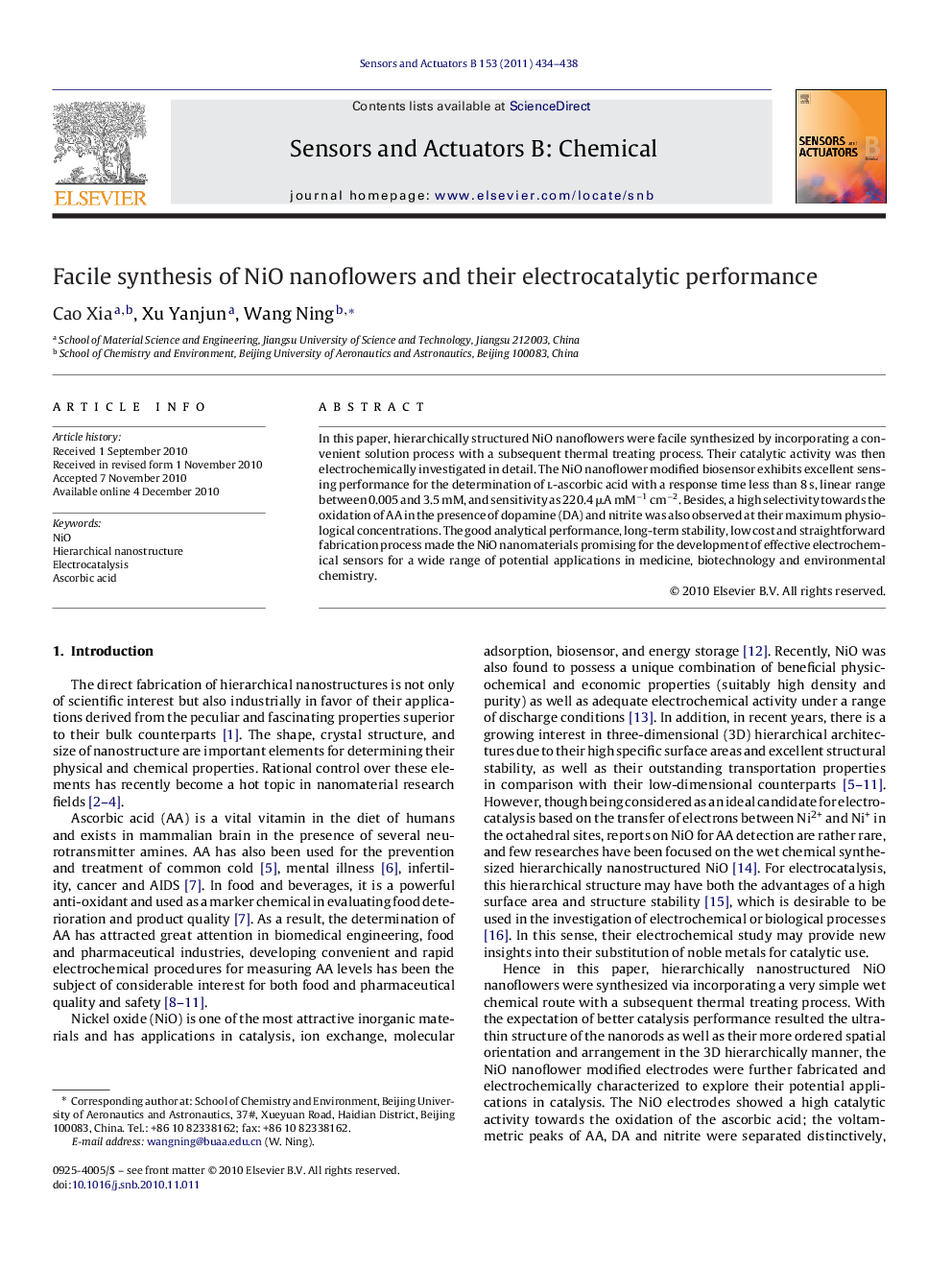| Article ID | Journal | Published Year | Pages | File Type |
|---|---|---|---|---|
| 751126 | Sensors and Actuators B: Chemical | 2011 | 5 Pages |
In this paper, hierarchically structured NiO nanoflowers were facile synthesized by incorporating a convenient solution process with a subsequent thermal treating process. Their catalytic activity was then electrochemically investigated in detail. The NiO nanoflower modified biosensor exhibits excellent sensing performance for the determination of l-ascorbic acid with a response time less than 8 s, linear range between 0.005 and 3.5 mM, and sensitivity as 220.4 μA mM−1 cm−2. Besides, a high selectivity towards the oxidation of AA in the presence of dopamine (DA) and nitrite was also observed at their maximum physiological concentrations. The good analytical performance, long-term stability, low cost and straightforward fabrication process made the NiO nanomaterials promising for the development of effective electrochemical sensors for a wide range of potential applications in medicine, biotechnology and environmental chemistry.
